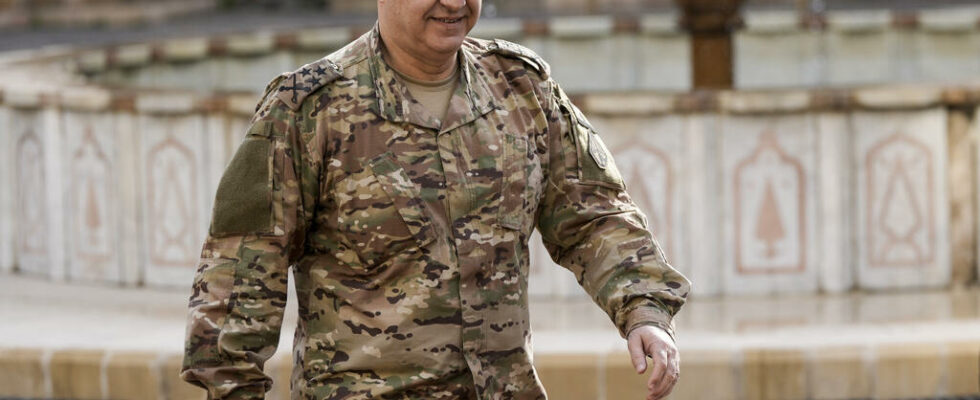The Lebanese Parliament meets this Thursday, January 9 to try to elect a President of the Republic after a vacancy of more than two years. The way seems open for the election of a successor to Michel Aoun, whose mandate ended at the end of October 2022.
1 minute
With our correspondent in Beirut, Paul Khalifeh
The favored candidate is army chief General Joseph Aoun, who enjoys the support of the United States and Saudi Arabia, two countries that wield major political influence in Lebanon.
In recent days, the obstacles preventing the success of the electoral session have fallen one after the other. The quorum of 86 deputies out of the 128 in Parliament will be ensured without worry. And if no candidate obtains two-thirds of the votes in the first session, the 65 votes necessary to elect the president in subsequent sessions are available.
Also readLebanese presidential election: “I believe that the obstacles have now largely fallen”
Even if he is not officially a candidate, the head of the army is gaining support. The latest came on Wednesday January 8 in the evening from the former minister and deputy Sleimane Frangié, supported for two years by Hezbollah. The withdrawal of this Maronite leader from northern Lebanon frees Hezbollah and its allies from the promise made to Sleiman Frangié.
Joseph Aoun can also count on the votes of the parliamentary bloc of Druze leader Walid Jumblatt, and those of the group of Sunni deputies. The army chief also received the support of around thirty opposition deputies led by the Christian party of the Lebanese Forces.
Understanding the institutional blockage in Lebanon
The designation of a successor at the head of the Lebanese state is blocked by the standoff between the different political blocs, which has happened several times in recent decades, recalls our journalist Nicolas Fallez.
Tradition dictates that the Lebanese President is a Maronite Christian: the Prime Minister is a Sunni Muslim and the President of Parliament a Shiite Muslim. For many months, Hezbollah and its allies supported the candidacy of Christian political leader Sleiman Frangié, sharing the same positions and known to be close to former Syrian leader Bashar el-Assad.
The bloc formed by Hezbollah and its allies torpedoed all other candidacies. For this, it was enough for him not to take part in the various votes, since a quorum of 86 deputies out of the 128 in Parliament is required to elect the President.
The last attempt dates back to last June, but since then, the military and regional weakening of Hezbollah has reshuffled the cards, with no guarantee of an exit from the institutional rut for Lebanon.
